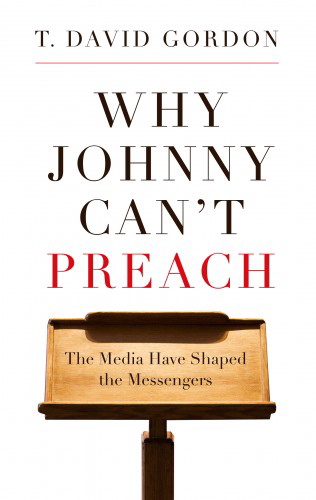 One of the textbooks, if you will, in our preaching class at Bible college was John Piper’s book The Supremacy of God in Preaching. I think that was my first exposure to Piper, and then his influence lay dormant for me for another eight years or so, until I “discovered” him and his God-centered, Bible-saturated, Christ-exalting ministry again, though seemingly for the first time.
One of the textbooks, if you will, in our preaching class at Bible college was John Piper’s book The Supremacy of God in Preaching. I think that was my first exposure to Piper, and then his influence lay dormant for me for another eight years or so, until I “discovered” him and his God-centered, Bible-saturated, Christ-exalting ministry again, though seemingly for the first time.
This passage I’m quoting is from that book, and he is at this point dealing with the Bible as the content and focus of preaching, and the preacher’s reliance on the Bible as the gift from the Holy Spirit.
Oh, how much needs to be said about the use of the Bible in preaching! Relying on the Holy Spirit at this point means believing heartily that “all Scripture is inspired by God and profitable for teaching, for reproof, for correction, and for training in righteousness” (2 Tim. 3:16), believing that “no prophecy [which in the context of 2 Pet. 1:19 means Scripture] ever came by the impulse of man, but that men moved by the Holy Spirit spoke from God” (2 Pet: 1:21), and having a strong confidence that the words of Scripture are “not taught by human wisdom but taught by the Spirit” (1 Cor. 2:13). Where the Bible is esteemed as the inspired and inerrant Word of God, preaching can flourish. But where the Bible is treated merely as a record of valuable religious insight, preaching dies.
But it is not automatic that preaching will flourish where the Bible is believed to be inerrant. Among evangelicals today there are other effective ways for the power and authority of biblical preaching to be undercut. There are subjectivist epistemologies that belittle propositional revelation [as in the emergent church – J.S.]. There are linguistic theories that cultivate an exegetical atmosphere of ambiguity. There is a kind of popular, cultural relativism that enables people to dispense flippantly with uncomfortable biblical teaching.
Where these kinds of things take root, the Bible will be silenced in the church, and preaching will become a reflection of current issues and religious opinions. Surely this is not what Paul meant when he said to Timothy, “I charge you in the presence of God and of Christ Jesus who is to judge the living and the dead, and by his appearing and his kingdom: preach the word” (2 Tim. 4:1-2).
The Word! There’s the focus. All Christian preaching should be the exposition and application of biblical texts. Our authority as preachers sent by God rises and falls with our manifest allegiance to the text of Scripture. I say “manifest” because there are so many preachers who say they are doing exposition when they do not ground their assertions explicitly — “manifestly” — in the text. They don’t show their people clearly that the assertions of their preaching are coming from specific, readable words of Scripture that the people can see for themselves.
One of the biggest problems I have with younger preachers I am called on to critique is that they fail to quote the texts that support the points they are making. It makes me wonder if they have been taught that you should get the drift of a text and then talk in your own words for thirty minutes. The effect of that kind of preaching is to leave people groping for the Word of God and wondering whether what you said is really in the Bible.
Instead, in the literate Western culture we need to get people to open their Bibles and put their fingers on the text. Then we need to quote a piece of our text and explain what it means. Tell them which half of the verse it is in. People lose the whole drift of a message when they are groping to find where the pastor’s ideas are coming from. Then we should quote another piece of the text and explain what it means. Our explanation will draw in other passages of Scripture. Quote them! Don’t say general things like, “As Jesus says in the Sermon on the Mount.” Along the way or at the end we should urge it into their consciences with penetrating application.
We are simply pulling rank on people when we tell them, and don’t show them from the text. This does not honor the Word of God or the work of the Holy Spirit. I urge you to rely on the Holy Spirit by saturating your preaching with the Word he inspired.
